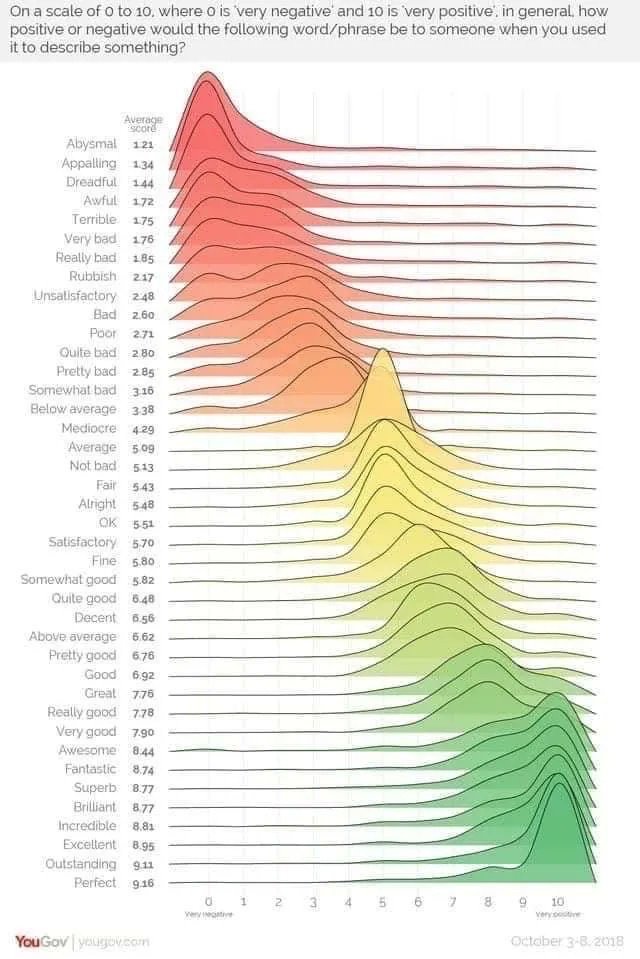How “negative” or “positive” different English words are perceived
How “negative” or “positive” different English words are perceived
The perception of the "positivity" or "negativity" of a word can vary greatly depending on the context in which it is used and the individual reader or listener's personal experiences and associations with the word. Some words may be generally considered more positive or negative, but their connotations can change depending on how they are used.
For example, words like "love," "happiness," and "success" are generally considered positive, while words like "hate," "sadness," and "failure" are generally considered negative. However, these connotations can be reversed or modified depending on the context. For example, a person might say "I love my job" to express positive feelings about their work, but they might say "I hate my job" to express negative feelings. Similarly, the word "success" might have a positive connotation when it refers to achieving a personal or professional goal, but it might have a negative connotation when it is used to imply that someone has an unfair advantage or is imposing their will on others.
It is also worth noting that certain words may be considered offensive or inappropriate in certain contexts, regardless of their inherent positivity or negativity. It is important to be mindful of the language you use and to consider how it may be perceived by others.
